When your Briggs and Stratton pressure washer won't start, it can be challenging to get your chores done. So what do you do when you run into this problem? We have researched to help you pinpoint the problem with your pressure washer.
If your Briggs and Stratton pressure washer doesn't start, then it could be due to the following:
- Clogged Carburetor
- Worn Spark Plug
- Faulty Ignition Coil
- Bad Flywheel Key
- Old Gas
- Clogged Filters
- Bad Fuel Shut Off Solenoid
- Water Leaks or Kinked Lines
- Bad Fuel Pump
- Faulty Exhaust Valve
- Water is Turned Off
- Bad Power Supply
As you can see, there are several components that you need to check for when your pressure won't start. However, in this article, we discuss each of these parts and the warning signs to watch for. In addition, we will take a look at if Briggs and Stratton pressure washers are a good purchase, so read on!
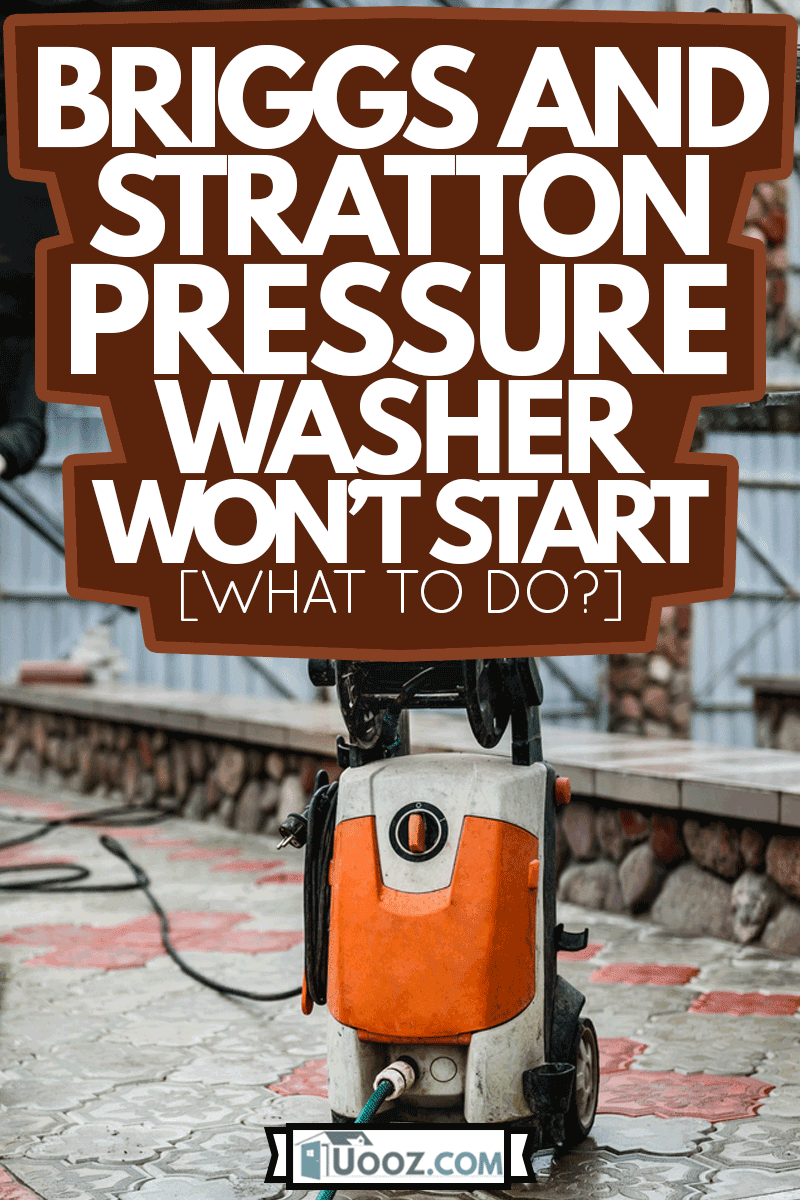
Why is my Briggs and Stratton Power Washer not Starting?
A pressure washer is powered by a gasoline engine, which creates hydraulic pressure. This hydraulic pressure is then used to clean the surface you are trying to clean.
When a pressure washer does not start, it is often difficult to determine the root of the problem. This is because many different components make up the pressure washer. However, by examining each component, you may determine where the problem is.
This article will discuss some of the most common reasons why your Briggs and Stratton pressure washer will not start. We will also provide you with some tips on troubleshooting the issue.
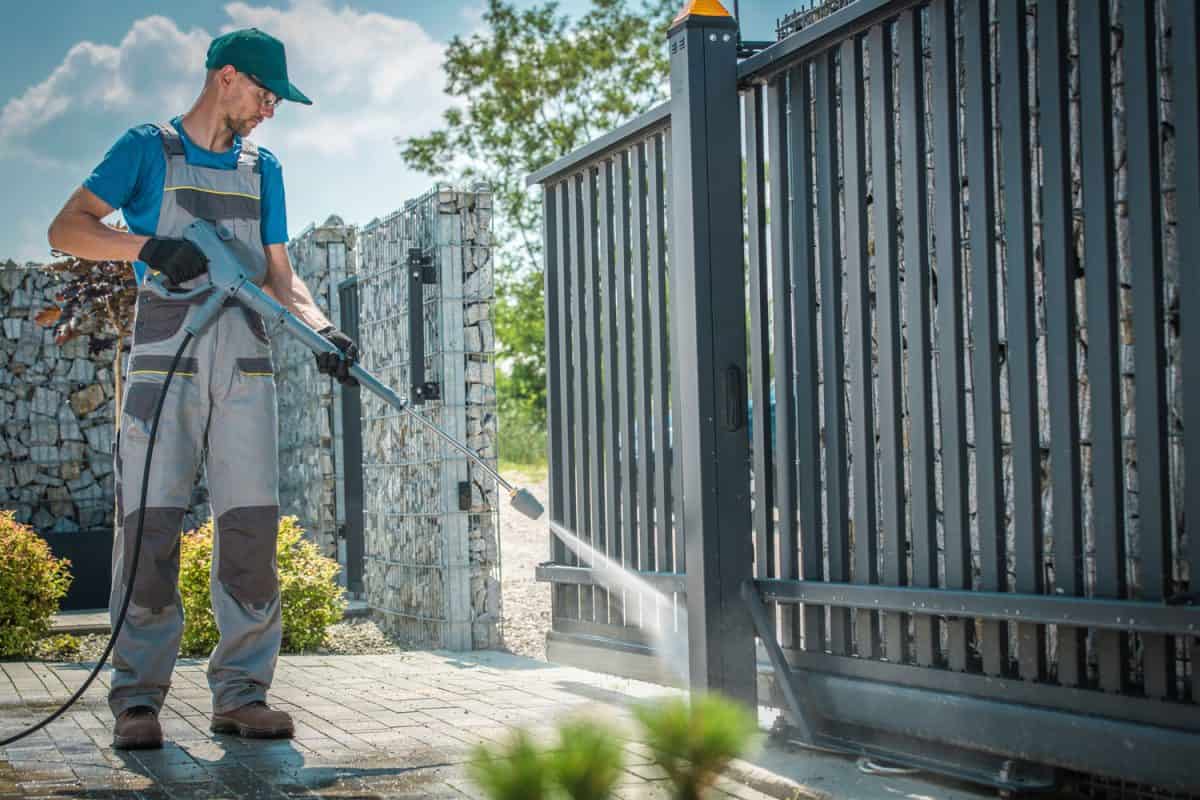
Clogged Carburetor
One of the most common reasons a pressure washer will not start is a clogged carburetor. Therefore, if your pressure washer does not start, it is essential to check the carburetor first.
To do this, you want to check the filter and ensure that it is not clogged. If the filter is clean, you will likely need to replace your carburetor kit.
Worn Spark Plug
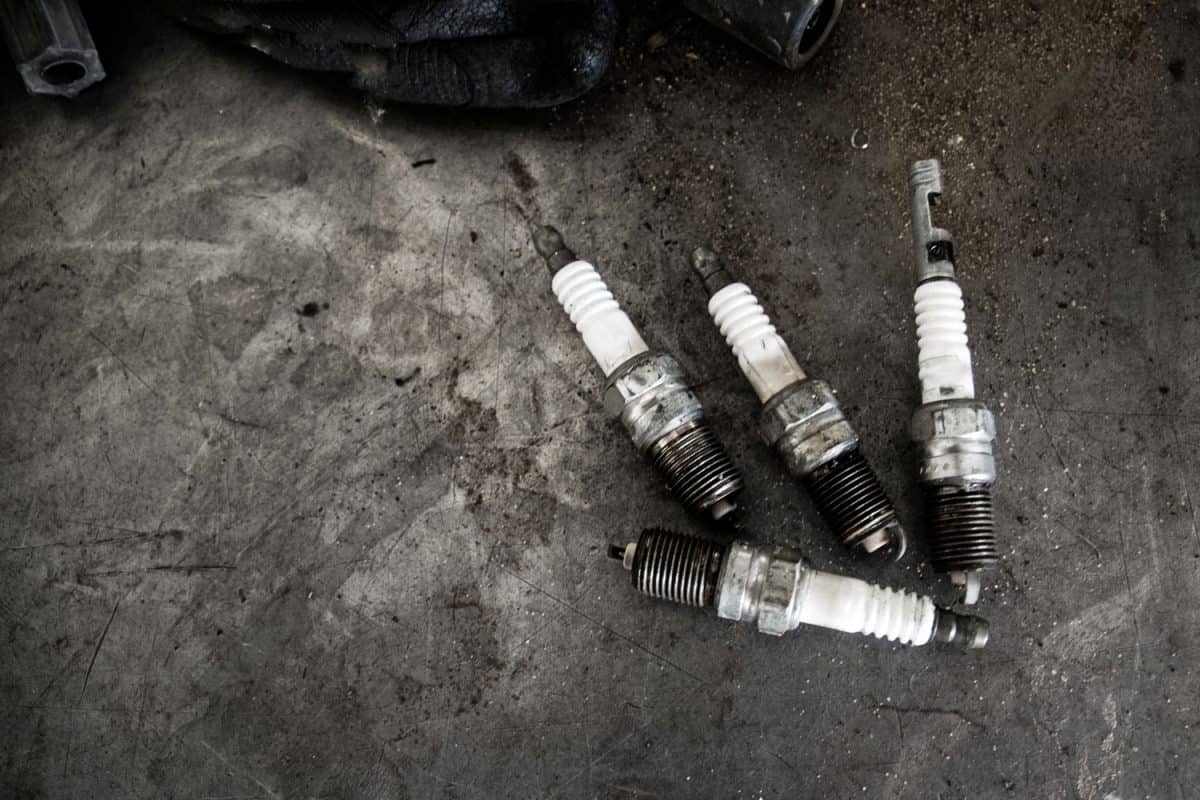
If the carburetor is not the problem, the spark plug may be the issue. A worn spark plug will often prevent the pressure washer from starting.
To determine if the spark plug is bad, you can remove it and check the electrodes. If they are pitted or blackened, then it is likely that the spark plug needs to be replaced.
Faulty Ignition Coil
If the spark plug is not the issue, the ignition coil may be bad. A faulty ignition coil can often prevent the pressure washer from starting.
To determine if the ignition coil is bad, you can remove it and check the coil's resistance. If it is open or very high, you will need to replace your ignition coil.
Bad Flywheel Key
If the spark plug and the ignition coil are not causing your pressure washer to start, it may be due to a bad flywheel key. A bad flywheel key can often prevent the pressure washer from starting.
To determine if the flywheel key is bad, you can remove it and check for wear and grime buildup. If there is a lot of dirt around the keyway, you will need to replace your pressure washer's flywheel key.
Old Gas
If you have tried replacing the spark plug, the ignition coil, and the flywheel key, you will likely have old gas. Old gas can cause your pressure washer not to start.
To determine if you have old gas, check how long it has been since you refueled your pressure washer. If there are more than one to two months in between refuels, you will likely have old gas.
Clogged Filters
Another common reason a pressure washer will not start is clogged filters. If the filters are clogged, then the pressure washer will not produce any hydraulic pressure.
To determine if the filters are clogged, you will want to remove them and check for dirt and grime. If there is a lot of grime buildup, then it is likely that the filters need to be replaced.
Bad Fuel Shut Off Solenoid
Another common reason a pressure washer will not start is a bad fuel shut-off solenoid. If the fuel shut-off solenoid is bad, it will prevent gas flow to the carburetor and cause your pressure washer not to start.
To determine if the fuel shut-off solenoid is bad, you should check the resistance of the solenoid. If there is no current running through it or if it has an open circuit, then you will need to replace your fuel shut-off solenoid.
Water Leaks or Kinked Lines
Another common reason a pressure washer will not start is water leaks or kinked hoses. If the lines are leaking, they will need to be replaced immediately.
To determine if your hoses are leaking, you should check for wet spots on the ground below where the hoses run through. If there are wet spots, then the hoses are likely leaking.
Bad Fuel Pump
Another common reason a pressure washer will not start is a bad fuel pump. If the fuel pump is bad, it will prevent gas flow to your carburetor and cause your pressure washer not to start.
To determine if the fuel pump is bad, you should check for proper operation after removing it. For example, if there is no current running through the pump or fails to move, you will need to replace your fuel pump.
Faulty Exhaust Valve
Another common reason a pressure washer will not start is a faulty exhaust valve. If the exhaust valve is bad, it will not allow the burned gases to escape and cause your pressure washer not to start.
To determine if the exhaust valve is bad, you can remove it and check for carbon deposits. If there are many carbon deposits, you will need to replace your pressure washer's exhaust valve.
Water is Turned Off
If you cannot find any of the above problems, the water may be turned off. To determine if the water is turned off, check for the presence of water at the inlet side of your pressure washer. If there is no water present, then the water is likely turned off.
Bad Power Supply (Electric Pressure Washer)
If your Briggs and Stratton pressure washer won't start, then check your power supply. For example, you may have a tripped breaker and no power to the pressure washer.
To determine if you have a tripped breaker, simply reset it and check the inlet side of your pressure washer for water. If there is no water present, your power supply might be bad.
How Do you Start a Briggs and Stratton Pressure Washer?
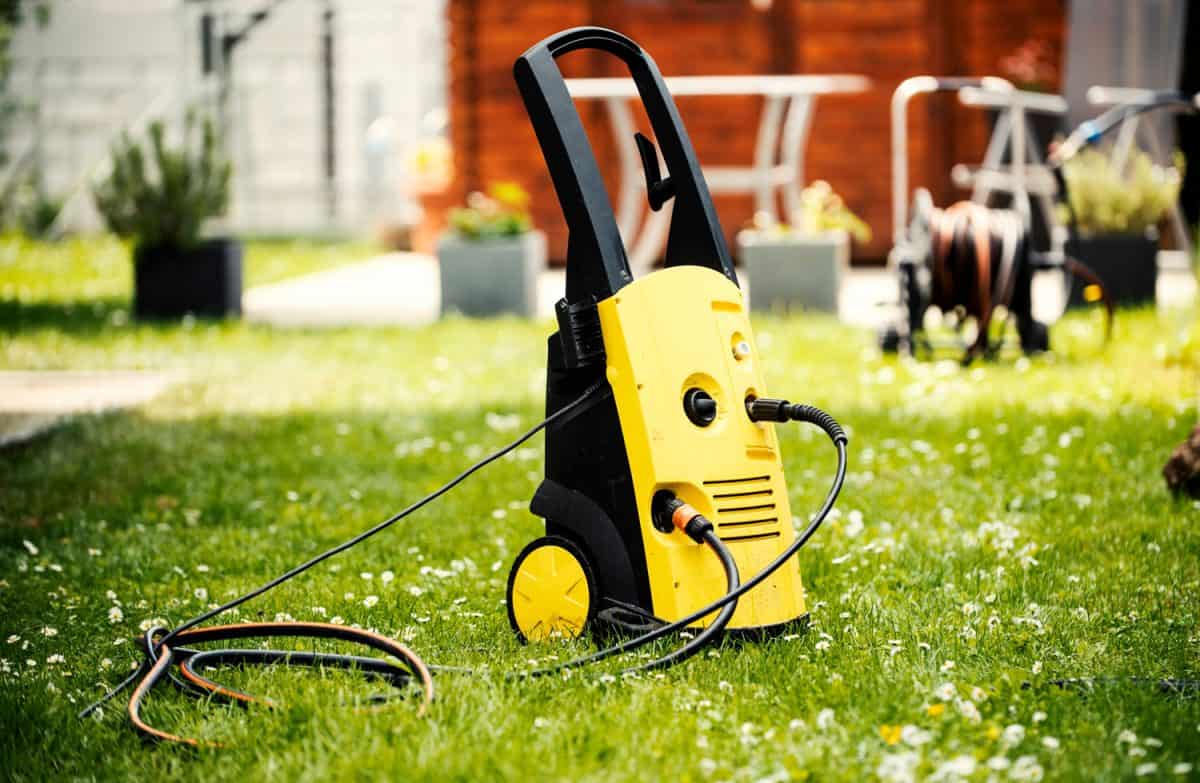
Briggs and Stratton do make a gas-powered and electric pressure washer. In order to start each, follow the steps below.
Starting Gas-Powered Briggs and Stratton Pressure Washer
To start a gas-powered Briggs and Stratton pressure washer, follow these steps:
- First, make sure you have enough oil.
- Pour the correct fuel into your pressure washer's tank.
- Next, pull out the choke and pull start to prime the engine.
- Slowly push in choke while pulling the start cord until it starts up.
- If the engine stops, pull out the choke and repeat step four.
- When the engine starts, release the choke.
- Turn on the water supply.
- Start pressure washing.
- Shut off the engine when finished.
- Clean up any spilled fuel or oil.
Starting Electric Briggs and Stratton Pressure Washer
For an electric Briggs and Stratton pressure washer, follow these steps:
- First, make sure you have enough water.
- Check for tripped circuit breakers.
- Connect the pressure washer to a power source and turn it on.
- Slowly push in choke while pulling the start cord until it starts up.
- If the engine stops, pull out the choke and repeat step four.
- When the engine starts, release the choke.
- Start pressure washing.
Is it OK to Start a Pressure Washer Without Water?
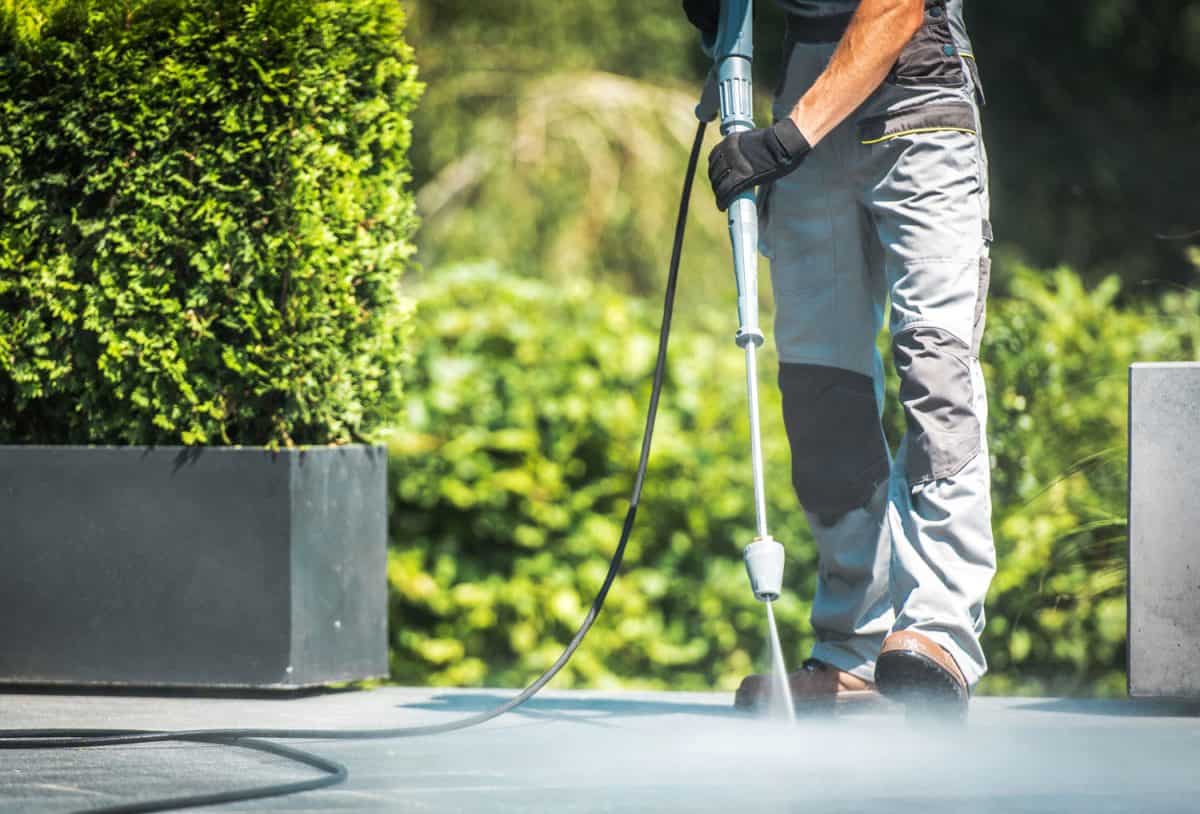
It is not recommended to start a pressure washer without water. If you do, the pump may overheat and damage the washer. Therefore, always make sure there is plenty of water available before starting your pressure washer.
Are Briggs and Stratton Pressure Washers Good?
Briggs and Stratton is a well-known company that produces high-quality pressure washers. Their pressure washers are known for their durability and performance. A Briggs and Stratton model will be a good choice if you are looking for a reliable pressure washer.
Final Thoughts
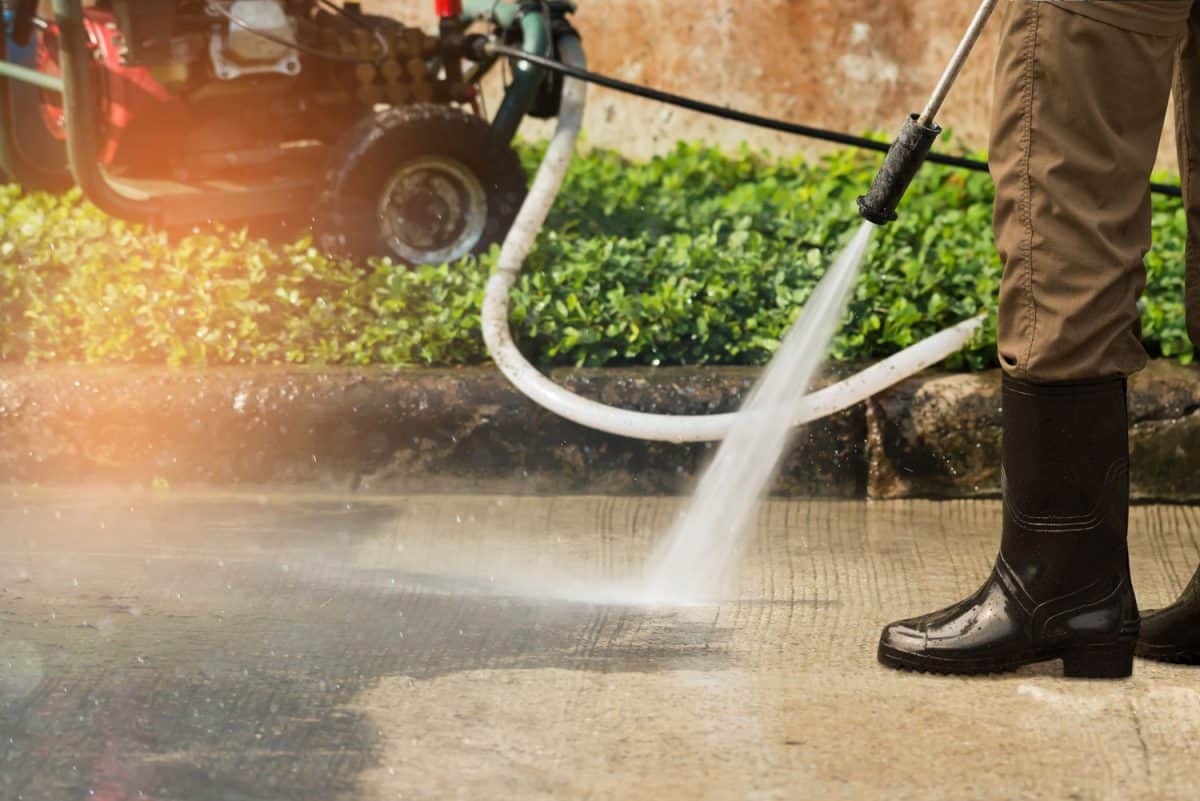
If your Briggs and Stratton pressure washer won't start, there may be a problem with the fuel pump, exhaust valve, water supply, or power supply. Check these areas for problems and try to troubleshoot the issue.
If you cannot determine the cause of the problem, then take the pressure washer to a professional to be checked. Doing so will save you time and money since the pressure washer might require only minimal repairs.
If you liked this article, then you might also like:
Echo Weed Eater Won’t Start – What To Do?
